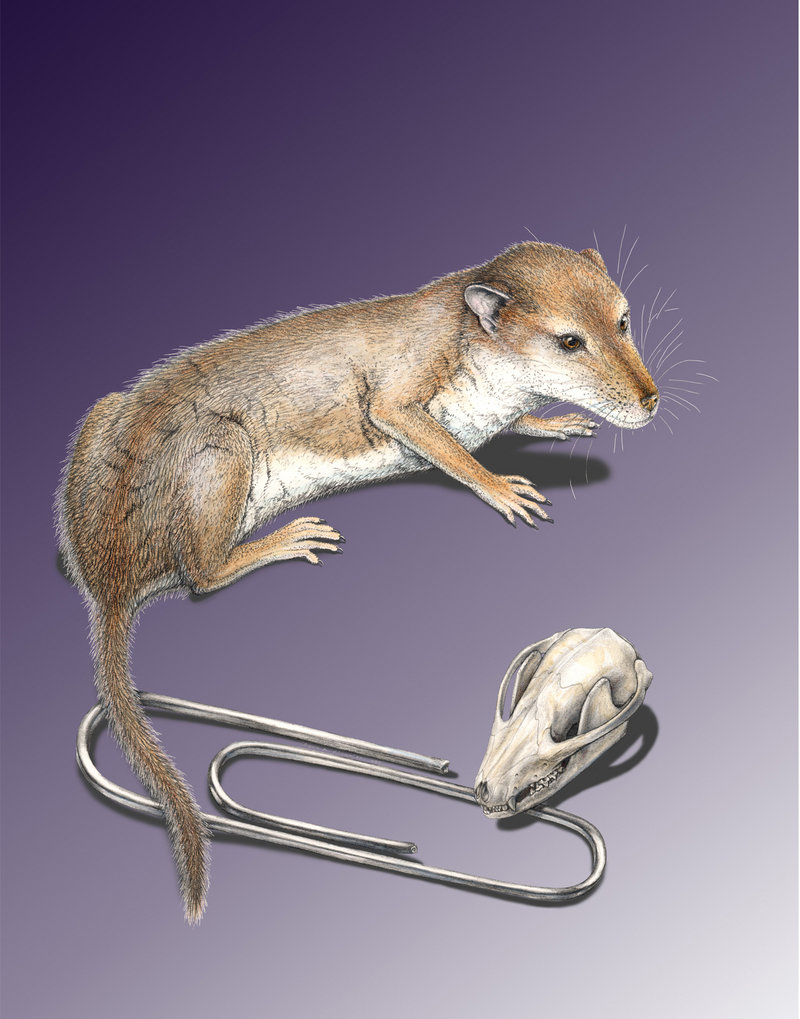WASHINGTON – The unusually large brains of mammals apparently didn’t evolve so that we could ponder philosophy — but so we could sniff our way to success.
A new analysis of some of the earliest mammals and mammal-like creatures shows their complex brains evolved in stages, starting with the regions that handle the sense of smell.
The tiny creatures that evolved into today’s mammals “exploited a world of information dominated to an unprecedented degree by odors and scents,” report researchers led by Timothy B. Rowe, a paleontologist at the University of Texas.
“If I had to tell a freshman class what it means to become a mammal, it means to become a superb smeller,” Rowe said.
Enlargement of the brain’s smell-sensing region was followed by upgrades in the brain areas that deal with touch sensitivity from body hair, and then parts providing improved movement, Rowe and colleagues report in today’s edition of the journal Science.
Among mammals, today’s humans have traded away some of that ability to smell for improved vision and hearing, Rowe said.
The report is “very significant because it outlines, for the first time, the evolutionary history of major brain regions in the closest relatives of mammals, and early mammals,” said Hans-Dieter Sues, curator of vertebrate paleontology at the Smithsonian’s National Museum of Natural History.
Scientists think these tiny creatures were active at dusk or during the night, Sues said. “Thus, smell and tactile senses, but also improved hearing, would have been really important to these animals.”
Send questions/comments to the editors.



Success. Please wait for the page to reload. If the page does not reload within 5 seconds, please refresh the page.
Enter your email and password to access comments.
Hi, to comment on stories you must . This profile is in addition to your subscription and website login.
Already have a commenting profile? .
Invalid username/password.
Please check your email to confirm and complete your registration.
Only subscribers are eligible to post comments. Please subscribe or login first for digital access. Here’s why.
Use the form below to reset your password. When you've submitted your account email, we will send an email with a reset code.